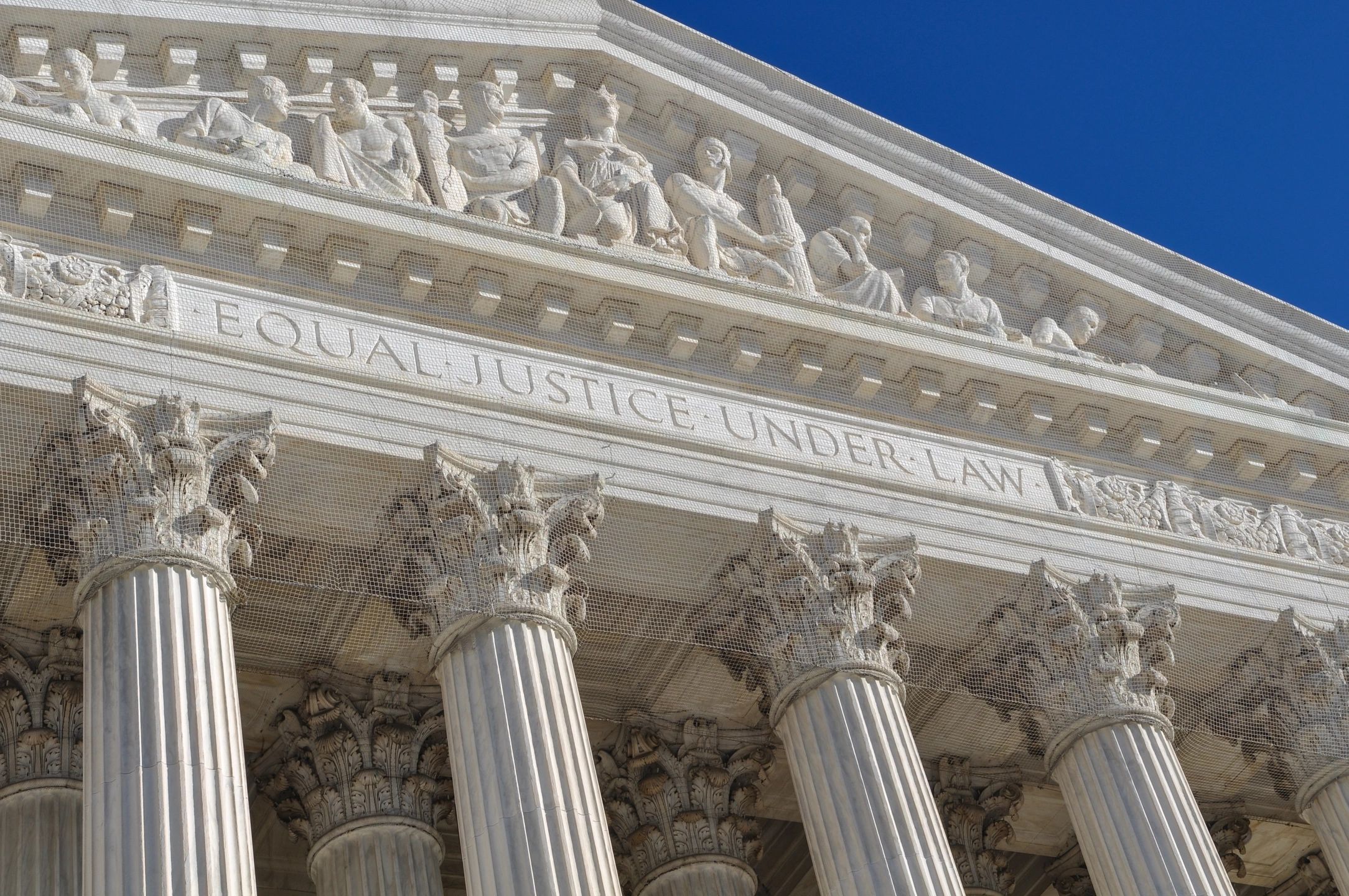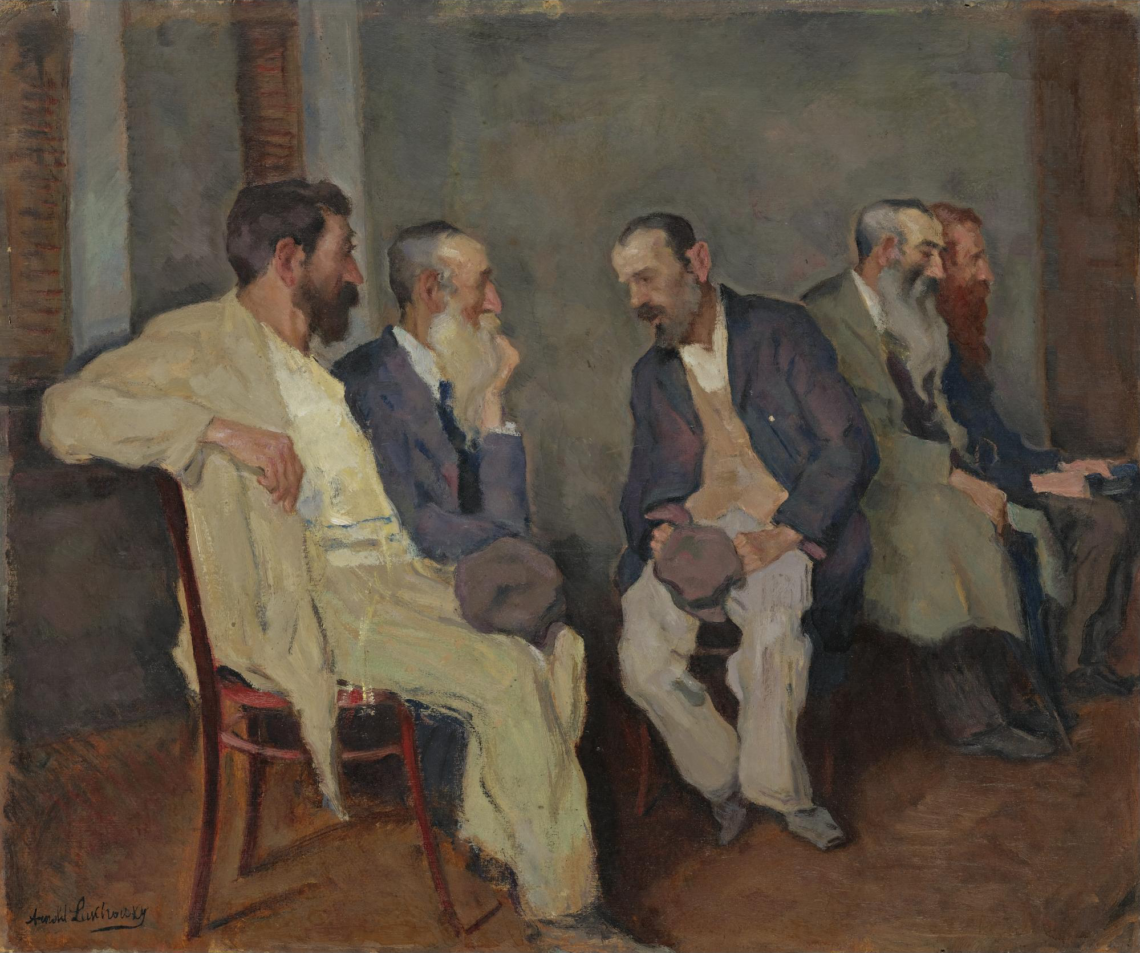According to the CCSSO teacher of the year, Sydney Chaffee, education is a matter of social activism. Teachers are to be facilitators, “thought partners” who let students “grapple with complex, hard issues” without “necessarily giving them the right answers.” Students are not formed, informed, or reformed by teachers; instead “students make choices” and the aim of the school is to “encourage students to articulate their own opinions, not to coerce them into agreeing with us.” It is the students who do the forming; teachers merely help them get where they want to go. Here is her vision: “School has to be bigger. It has to mean more than ‘I teach…
-
-
On Law and Justice
If you were to find yourself in court accused of performing an action that you think is morally permissible–good, even–but against which there is a law, how would you react? Most likely, even if everyone in the room thought otherwise, you would think an injustice was being carried out. Imagine being led from the courtroom to undergo lashing, imprisonment, or even death when in your mind you had done nothing wrong. I’m sure most people’s stomachs would be in a knot. You’d be angry and incensed for good reason. The reason, I suggest, is that legal codes of particular governing authorities are beholden to a higher law. Now, perhaps you…
-
Hard Work Does Not Always Pay
Though it is generally true that those who work hard will earn a living, the sweat of your brow has no necessary connection with the contents of your wallet. The value of your labor does not determine its price. What determines the price of something is the amount someone is willing to pay for it. Nor is there are moral connection – without a voluntary agreement to pay for someone’s labor, work itself does not obligate anyone to pay for it.
-
On Desire
Dissatisfaction is a mental state induced by not getting what one wants. Desire is also a root of evil. As James puts it, “each person is tempted when he is lured and enticed by his own desire. Then desire when it has conceived gives birth to sin, and sin when it is fully grown brings forth death” (James 1:14-15). There are at least two proposals on the cultural table for dealing with desires. Neither way works. The first way is to attempt to remove desires from the inside. This is the way of ‘enlightenment’ – coming to believe a new truth – there are no such things as desires. They appear real, but…
-
If Equality, then God.
Louis Pojman makes a convincing case for the conclusion that if there is any case for the equal dignity of human beings, then God exists: “The doctrine that all people are of equal worth, and this endowed with inalienable rights, is rooted in our religious heritage…The originators of rights language presupposed a theistic world view, and secular advocates of equal rights are, to cite Tolstoy, like children who see beautiful flowers, grab them, break them at their stems, and try to transplant them without their roots. The egalitarian assertions of the United Nations’ Universal Declaration of Human Rights are similar to those of our Declaration of Independence, with one important…
-
Generous Interpretation – The Bedrock of Good Relations
Relationships only work when we generally impute good motives to the speakers of sentences. Due to the nature of natural human languages, vagueness and ambiguity are inevitable in speech. Every-day talk is not supposed to be precise. But it works well because we assume the best of other people. At least in public discourse in America, this assumption is no longer true. It seems we assume the worst motives in other people (at least of those whose political opinions are not the same as our own). Even when we agree with them, we appear unable to impute good motives to our opponents (let alone when we disagree). One’s policy in…
-
Why Children Should Not Govern
Possible Democrat presidential nominee, Kamala Harris, recently tweeted the following: “Children are our nation’s future. We must listen to them about what they care about and give them a voice in our government.” I am sure Harris didn’t mean that children’s opinions should the the basis for actual policy, but her words betray an increasingly common view of the opinions of youth: that their importance ought to be elevated. Children are our nation’s future. We must listen to them about what they care about and give them a voice in our government. pic.twitter.com/buBBTj1MNc — Kamala Harris (@KamalaHarris) August 24, 2017 Harris’ sentiment is not new. I heard this kind of…
-
Sugurity
Everybody wants security. In the eighties, security meant having money. In the nineties, it meant owning a home. On the turn of the century, security meant winning a war on terror. Now, security is about having a political system that secures all our needs – healthcare, education, and even jobs. Political security of this kind is only achieved when governments become the source of some or all of the more valuable goods in society. But can a human system of government achieve that kind of security for its people? Just like every other quest for a human-made source of security, the search is in vain. When one puts all one’s…





